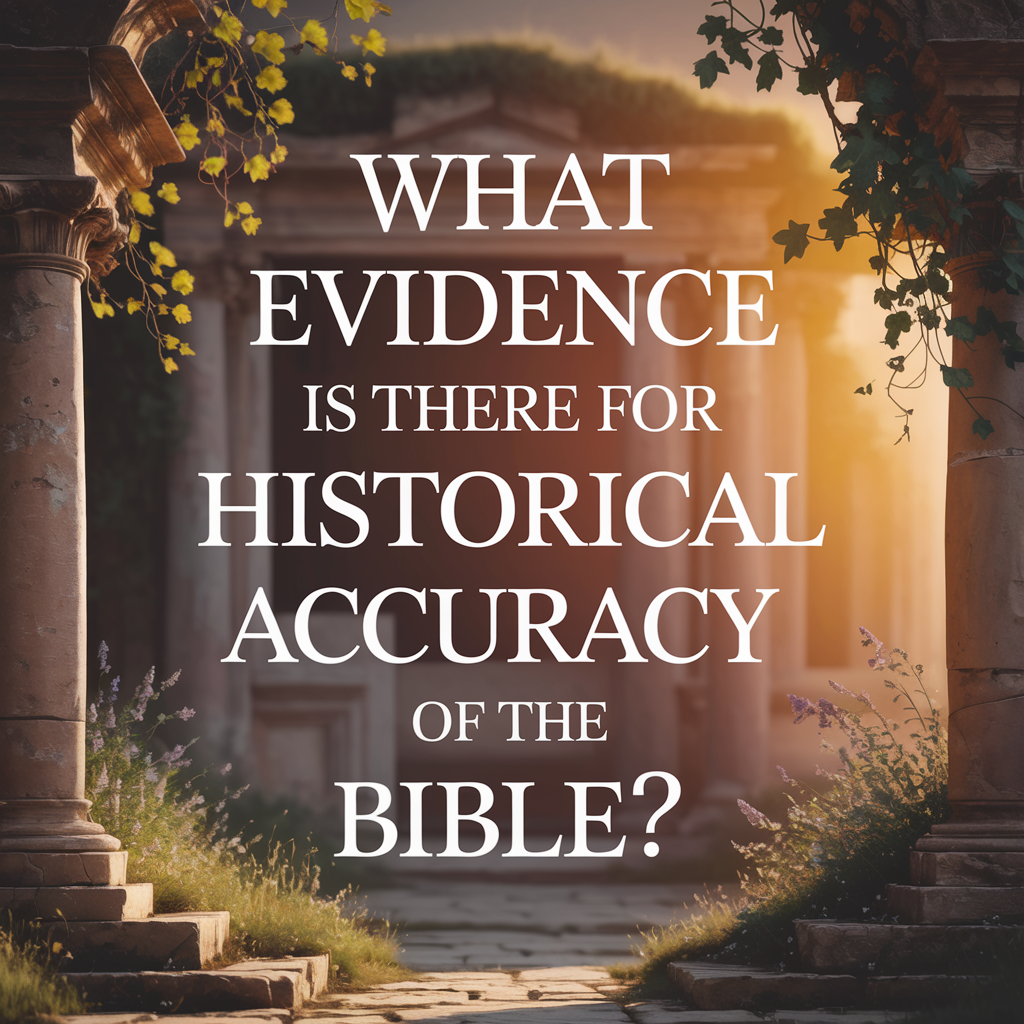
As Christians, we believe in the historical accuracy of the Bible, recognizing it as God’s inspired Word. While faith plays a central role in our belief, there is also compelling evidence supporting the historical reliability of the Bible.
Archaeological Discoveries: Over the years, numerous archaeological discoveries have confirmed the accuracy of biblical accounts and shed light on the historical context of the events described. For example, the discovery of ancient manuscripts, such as the Dead Sea Scrolls, has provided us with remarkable insights into the preservation of biblical texts and their fidelity to the original writings.

Eyewitness Testimony: The Bible contains accounts written by eyewitnesses or those who were closely associated with the events described. For instance, the apostle Peter, an eyewitness to Jesus’ ministry, wrote the books of 1 Peter and 2 Peter. The apostle Paul, who encountered Jesus on the road to Damascus, penned numerous letters found in the New Testament. Their firsthand accounts offer compelling evidence for the historical accuracy of the Bible.
External Historical Sources: The Bible’s historical accuracy is corroborated by external sources from the same time period. For instance, Flavius Josephus, a Jewish historian who lived in the first century, made references to biblical figures and events in his writings, providing independent confirmation of their existence.

Fulfillment of Prophecy: The Bible contains numerous prophecies that were fulfilled with remarkable precision. For example, Old Testament prophecies about the coming of the Messiah find fulfillment in Jesus Christ, providing strong evidence for the divine inspiration of the Scriptures. One such prophecy is found in Micah 5:2, which foretold that the Messiah would be born in Bethlehem, a prophecy fulfilled by Jesus’ birth.
Manuscript Evidence: The sheer number of biblical manuscripts, spanning across various languages and centuries, provides substantial evidence for the accurate transmission of the biblical text. Scholars have meticulously compared these manuscripts to determine the reliability and consistency of the biblical text throughout history.
The Testimony of Jesus: Jesus Himself affirmed the historical accuracy of the Scriptures. In Matthew 5:17-18, He stated, “Do not think that I came to destroy the Law or the Prophets. I did not come to destroy but to fulfill. For assuredly, I say to you, till heaven and earth pass away, one jot or one tittle will by no means pass from the law till all is fulfilled.” Jesus’ words affirm the enduring nature and accuracy of the biblical text.

In conclusion, the historical accuracy of the Bible is supported by archaeological discoveries, eyewitness testimony, external historical sources, the fulfillment of prophecy, manuscript evidence, and the testimony of Jesus Himself. While faith remains integral to our belief in the Bible, these evidences provide a strong foundation for our confidence in its historical reliability. As Christians, we can approach the Bible with faith, knowing that its historical accuracy aligns with God’s divine plan and purpose.

As an Amazon Associate we earn from qualifying purchases through some links in our articles.



